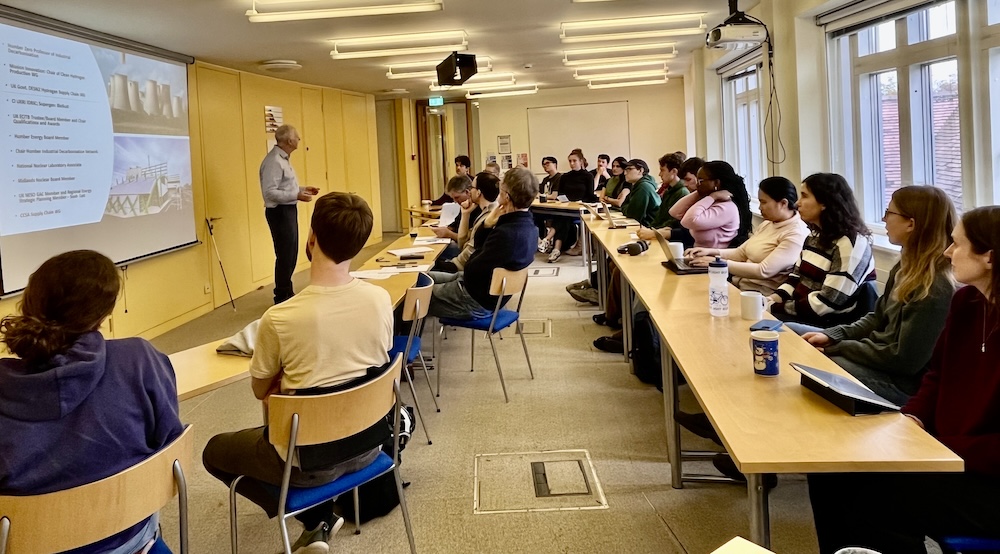Professor Joe Howe is the Net Zero Professor at the University of Lincoln and the academic lead for the Humber Industrial Cluster. The Humber Cluster spans both banks of the Humber Estuary, connected by the Humber Bridge and hosting the ports of Goole, Grimsby, Hull, Immingham and Killingholme. £18 bn of the UK’s economy is generated in the Humber each year, with 20% of the economic value coming from energy-intensive industries: 360,000 jobs are supported by industries such as refining, petrochemicals, manufacturing and power generation.
Currently, the Humber Industrial Cluster is the biggest CO2 emitter in the UK. It is home to two of the UK’s six oil refineries and one of its two integrated steelworks. However, the Humber cluster has easy access to offshore CO2 storage facilities in the southern North Sea, and it is home to Europe’s largest biomass power station (DRAX), supporting the potential for negative emissions of up to 16 megatonnes CO2 equivalents per year.
The Humber Industrial Cluster aims to reach net zero by 2040, and during this week’s seminar, professor Howe discussed some of the opportunities and challenges associated with this transition. He explored how the current infrastructure might be converted and repurposed, and how new challenges such as water shortage will arise during the process. You can read more about the Humber Industrial Cluster Plan here and here, and about other regional cluster decarbonisation projects in the UK here.
